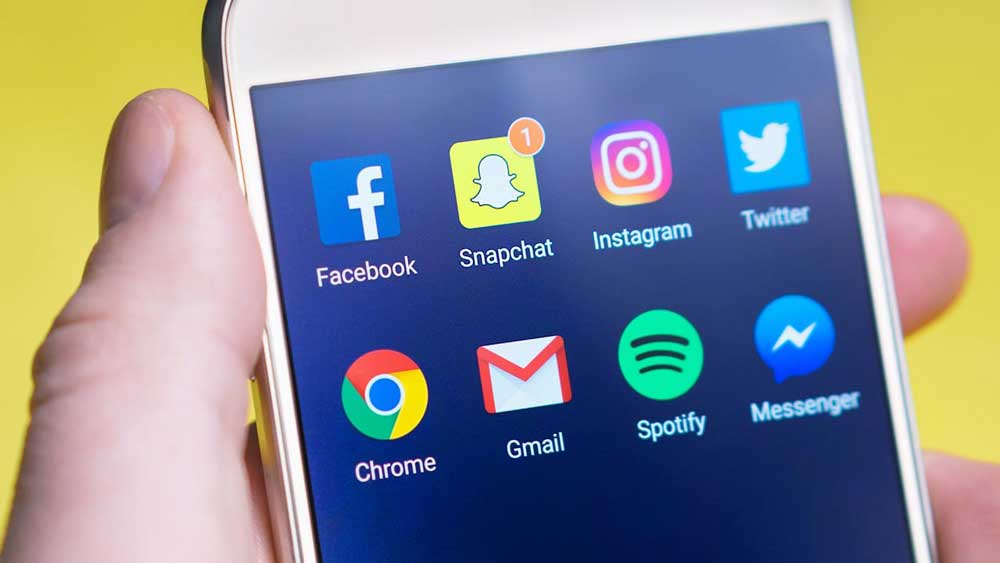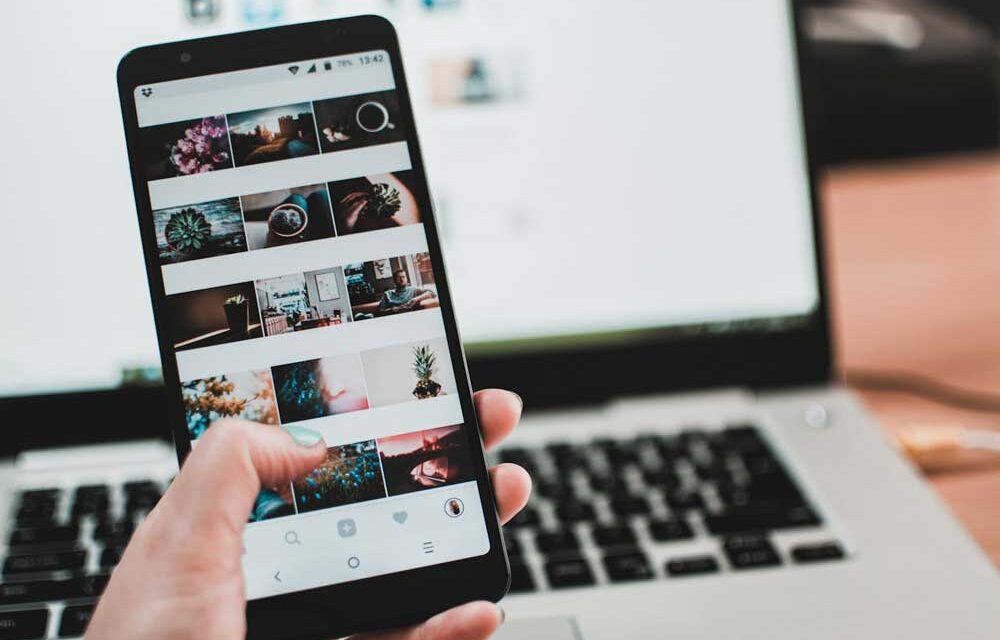And Why Ignoring It Is Like Opening a Store in the Middle of the Sahara
Imagine you just opened a cozy little bakery. You’ve got the best cupcakes in town. Moist, fluffy, and topped with just the right amount of frosting. But there’s one problem… your bakery is in the middle of a desert. No roads, no signs, no people. Just you and a very confused camel.
That’s what having a business without digital marketing looks like.
1. Because Your Customers Are Online – Even at 3 AM
People spend an embarrassing amount of time scrolling on their phones—whether they’re looking for a new restaurant, a plumber, or just watching cat videos for three hours straight. If your business isn’t showing up in their searches, you might as well be invisible.
And let’s be honest—when people need something, they don’t pull out a phonebook like it’s 1995. They Google it. If you’re not online, you’re basically telling potential customers, “I don’t exist, but thanks for looking!” Spoiler alert: they won’t look very hard.
Also, let’s not forget the late-night shoppers. You know, the ones who randomly decide at 2:37 AM that they need a custom-made scented candle shaped like a taco. If your website isn’t there to take their order, they’ll buy from someone else. And that’s how you lose out on money while you’re sleeping.
2. It’s Cheaper Than a Billboard – And Way More Effective
Sure, you could spend a fortune on a giant billboard. But what are the chances that your dream customer drives by at just the right moment, while they’re not too busy singing along to their favorite song or yelling at their GPS? Exactly.
Meanwhile, digital marketing lets you target the exact people who are actually interested in what you’re selling. Want to sell artisanal dog biscuits? You can show your ads specifically to dog owners. Want to sell neon socks? Boom, target all the funky sock lovers of the world. A billboard can’t do that unless you hire someone to stand there and personally point at every potential customer.
And let’s not forget, that billboards don’t come with a “Buy Now” button. Digital ads do.
3. Social Media Is Basically Free Advertising – If You Use It Right
Small businesses can reach thousands, or millions of potential customers without spending a dime, just by being creative on social media. Post a funny meme, show behind the scenes chaos, or just let your cat be the company mascot. People love that stuff.
Ever seen a tiny coffee shop go viral just because their barista draws ridiculously good latte art? Or a bakery that names their muffins after celebrities, like “Muffin McConaughey”. That’s free exposure, and it can turn your small business into an overnight sensation.
Of course, you could ignore social media. But that’s like refusing to use a microphone at a concert and just hoping everyone hears you yelling from the stage. Spoiler: they won’t.
Social media is like that over-enthusiastic friend who never stops talking but somehow gets everyone’s attention. Your business needs to be on it.
-
Facebook – For people who still use “LOL” unironically. Great for community engagement and making your aunt proud.
-
But beware—Facebook is also the land of conspiracy theories and unsolicited parenting advice. If you post a picture of your product, someone will comment, “Nice, but have you tried essential oils?” Just nod, smile, and keep promoting your business.
-
-
Instagram – Where pictures matter more than words. If your product is pretty, congrats, you’ve already won half the battle.
-
Your goal? Make people double-tap without thinking. If you sell coffee, post a latte with a heart-shaped foam design. If you sell handmade jewelry, throw in a sunset background. People don’t buy things, they buy aesthetic vibes.
-
-
TikTok – The land of viral dances and questionable life hacks. If your business can be entertaining, you’ll fit right in.
-
Seriously, someone made millions selling a tiny cleaning mop for big Crocs. If that can go viral, your product can too. Just be ready to lip-sync, dance, or dramatically point at text bubbles like your life depends on it.
-
-
LinkedIn – Where professionals pretend they don’t procrastinate. Use it if your business wears a tie.
-
Think of it as Facebook’s serious, job-seeking cousin. If your business involves B2B services, post insightful articles about “synergy” and “leveraging growth opportunities.” If you’re lucky, people might even read past the first sentence.
-

4. Because Your Competitors Are Already Doing It
If you’re not online, your competitors will happily take your place. While you’re still deciding whether social media is “worth it,” they’re out there running ads, engaging with customers, and selling like crazy. Don’t let Bob from across the street steal all your business just because he learned how to use Instagram first.
Bob isn’t better than you, he just understands that posting a funny TikTok can sell more burgers than a whole week of standing outside with a “Best Burgers in Town” sign. While you’re still putting up flyers on telephone poles, Bob is making a viral dance challenge with his fries.
And trust me, customers are loyal to the businesses that show up in their feeds. If Bob keeps posting drool-worthy food pics, people will remember Bob’s Burger Shack. And if they’ve never even heard of your business? Well… they’ll just assume Bob’s the only option.
5. SEO: The Secret Sauce That Gets You Found
Imagine you own a pizza shop, but when people Google “best pizza near me,” your business doesn’t show up. Instead, they find a frozen pizza review from 2017. SEO (Search Engine Optimization) makes sure Google actually knows you exist, so people can find you before they settle for sad, microwaveable food.
Think of SEO as telling Google, “Hey! My business is awesome, and people need to see it!” If you don’t optimize your website, it’s like whispering that into a hurricane. Google has no idea you’re there, and your customers sure won’t either.
And let’s be real, nobody clicks on page two of Google search results. If your business isn’t ranking, you might as well be advertising in an underground bunker. SEO helps you climb that ladder to the top, so when people search for what you offer, you get the clicks instead of some random outdated blog post.
SEO (Search Engine Optimization) is how Google decides whether to show your website to customers or banish it to page 85 of search results, where no human has ever gone.
-
Use keywords people actually search for. If you sell handmade candles, don’t optimize for “illuminated wax art”, no one searches that.
-
You can use fancy marketing terms all you want, but if your customers type “best-smelling candles” into Google, and you’ve optimized for “aromatic combustion devices,” you’ll be invisible. Be relatable, not a thesaurus.
-
-
Write blog posts like this one, but maybe with fewer jokes. Google prefers information over sarcasm and that is very rude.
-
The secret to ranking higher? Write useful content. Give people tips, guides, and answers to their burning questions, like “How to remove candle wax from literally everything.” Bonus points if you slip in a product mention without looking too salesy.
-
-
Get backlinks, aka, convince other websites to link to you. Bribing them with cookies is an option. Even begging is an option.
-
Backlinks are like high school popularity points. The more cool websites that mention you, the more Google trusts you. But don’t get desperate and start buying sketchy backlinks from strangers is like buying followers on Instagram. It will backfire.
-
Why digital marketing is important for your small business?
Digital marketing isn’t just important—it’s your golden ticket to getting noticed. Whether you run a tiny coffee shop, a handmade soap business, or a dog-walking service, having an online presence helps you stand out. And unlike that billboard, digital marketing doesn’t disappear when it rains.
So, are you ready to take your small business from “hidden gem” to “customer magnet”? Or are you still waiting for that lost camel in the desert to bring in foot traffic?
How to Do Digital Marketing for Your Small Business – Without Losing Your Sanity
Whatever it is, you know you need digital marketing, but where the heck do you start?
Don’t worry, I’ve got you covered. Here’s how to market your small business online without spending a fortune, or crying into your coffee.
1. Set Up Your Online Home – Your Website
Your website is your digital storefront. If it looks like it was designed in 1999, people will run.
– Keep it simple & mobile-friendly: No one wants to zoom in 400% to read your contact info.
– Make it fast: If your website takes longer to load than it takes to make a cup of coffee, people will leave.
– Add clear calls to action: Tell visitors what to do, buy now, book an appointment, stalk you on Instagram, etc.
And yes, you need a website. Your Facebook page doesn’t count, sorry.
2. Claim Your Google Business Profile – Unless You Hate Free Customers
Want to show up when people Google “best coffee shop near me”? Then you need a Google Business Profile.
– Go to Google Business Profile and claim your spot.
– Add your hours, location, photos, and a description that actually makes people want to visit.
– Collect reviews like they’re Pokémon. The more ⭐⭐⭐⭐⭐ you have, the better!
If you skip this step, you’re basically telling Google, “Nah, I don’t want people to find me.”
3. Be Social , Yes, Even If You Hate Social Media
Love it or hate it, social media is free advertising. And no, you don’t have to dance on TikTok, unless you want to.
– Pick 1-2 platforms where your customers hang out (Facebook, Instagram, TikTok, LinkedIn, etc.).
– Post consistently no ghosting for three months and then suddenly posting 10 times in one day).
– Make it fun with behind-the-scenes clips, customer shoutouts, memes… whatever fits your vibe.
And for the love of marketing, don’t just post “Buy my stuff” every day. That’s the fastest way to get unfollowed.

4. Use Email Marketing – Because It Still Works, Even in 2025
Some people think email is dead. Those people are wrong.
– Collect emails from customers, and offer a discount or freebie to get them to sign up.
– Send useful & fun emails, behind-the-scenes updates, special deals, tips, etc.
– Don’t spam! If people see “50% OFF!!!” in their inbox every day, they’ll block you faster than their ex.
Think of email as texting your best friend, keep it friendly, helpful, and not too frequent.
Email marketing is that one tactic everyone thought would die, yet here it is, still working. Build a list of customers and send them engaging emails, but not too many, or they’ll unsubscribe faster than a gym membership in February.
-
Personalize! “Hey [First Name], here’s a special deal” works better than “Dear Valued Customer” (which sounds like a breakup letter).
-
People want to feel special, even when they’re getting a 10% off coupon. “Hey Sarah, we thought of you when we launched this new product” sounds personal. Even if Sarah knows you say that to everyone, she’ll still appreciate the effort.
-
-
Use killer subject lines—“You Need This in Your Life” > “March Newsletter Issue #82.”
-
No one wakes up excited to open a newsletter. But they will open an email titled “Your dog deserves this”, even if they don’t have a dog. Clickbait? Maybe. Effective? Definitely.
-
-
Don’t be spammy. If your email sounds like an infomercial, people will delete it faster than their ex’s number.
-
If your subject line is “Act Now or Regret It Forever!!!” you’re one step away from a scammy weight-loss ad. Be persuasive, but chill. No one likes a desperate email.
-
5. Get Found with SEO – Google Magic
SEO (Search Engine Optimization) is how you get your website to show up on Google without paying for ads.
– Use keywords your customers are actually searching for, like “best pizza in NYC” instead of “artisanal dough excellence”).
– Write blogs, FAQs, or helpful content to answer common customer questions.
– Optimize for local searches, mention your city, neighborhood, and nearby landmarks.
If you do SEO right, your website can bring in traffic 24/7, even while you’re sleeping.
6. Run Targeted Ads – Paid Marketing That Doesn’t Suck
If you have a little budget, Facebook, Instagram, and Google Ads can work wonders, if you do them right.
– Start small ($5–$10 per day) and test what works before going all in.
– Target the right audience (age, location, interests).
– Track results, if an ad is flopping, don’t waste more money on it!
Don’t just boost random posts and hope for the best. That’s like throwing money into a wishing well.
Running Google Ads and Facebook Ads is like gambling, but with better odds if you know what you’re doing. Start small, test different strategies, and never click your own ads, unless you like giving money to Google for no reason.
-
Google Ads: The fine art of appearing when people need you.
-
If you run a plumbing business, you want your ad to show up when someone types “Help, my bathroom is flooding.” But if you sell scented candles, maybe don’t target “emergency plumber” searches. Google will take your money either way. You need to know your customers and research your keywords.
-
-
Facebook Ads: The creepy way to target people.
-
Facebook somehow knows your customers better than their own mothers. Use this to your advantage, target by interests, location, and even whether someone recently searched for your product. Just don’t get too specific. “We noticed you were thinking about pizza at 2 AM” is unsettling, not persuasive.
-
7. Get Reviews & Social Proof – Because No One Trusts a Business with Zero Reviews
Would you eat at a restaurant with no reviews? Exactly. Your customers feel the same way.
– Ask happy customers to leave reviews on Google, Yelp, Facebook, etc.
– Showcase testimonials on your website & social media.
– Don’t freak out over one bad review, just respond professionally and move on.
People trust other people, not just businesses. Show them you’re legit!
8. Collaborate with Other Businesses – Marketing Hack: Team Up!
No business is an island! Partnering with other local businesses can double your exposure.
– Cross-promote on social media (e.g., a coffee shop + a bakery = match made in heaven).
– Run joint giveaways (like “Win a free dinner & dessert” with another restaurant).
– Feature each other’s products—sell locally made candles in your gift shop, etc.
It’s like free advertising, but better because both businesses win.
9. Track & Adjust – Because Marketing Is NOT “Set It & Forget It”
Marketing isn’t magic—it’s testing, learning, and improving.
-Use tools like Google Analytics, Facebook Insights, or Shopify reports to track what’s working.
– Stop doing what isn’t working, yes, even if you “thought it was a great idea”.
– Be flexible, trends change, algorithms update, and what worked last year might not work now.
Marketing is like a good recipe, you tweak the ingredients until it’s chef’s kiss perfect.
Final Thoughts: Start Small, Stay Consistent, and Have Fun!
Digital marketing doesn’t have to be overwhelming. Pick one or two strategies, start small, and be consistent. Before you know it, your small business will be bringing in customers without you having to chase them down. And that, my friend, is how you win at digital marketing.
Digital marketing isn’t magic, but it is necessary. Experiment, have fun, and remember: No amount of marketing will save a bad product, so make sure your socks-with-celebrity-faces are worth buying.
Now, go forth and conquer the internet!
Author: Big Digital Bear




